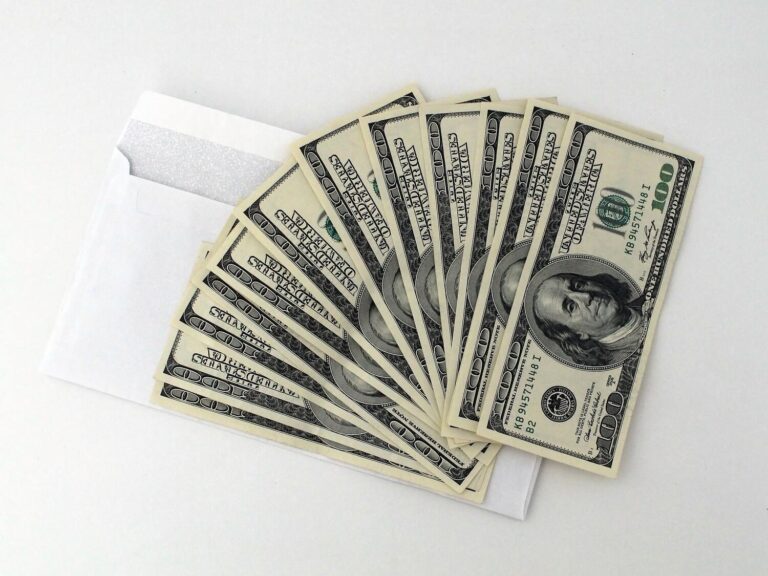How Long is a Check Good For?

Despite a steady decline of check usage among Americans, there are still 14.5 billion check payments made in the U.S. each year. There are many instances in which you might need to cash a check, such as receiving a tax refund. But before you stick that piece of paper in a drawer to deal with later, make sure you know how long a check is good for if it’s not cashed right away.
Checks that Expire After 6 Months
Both corporate checks and personal checks technically expire after six months from the issue date. There may be alternate void dates written on the check, such as 90 days, but that’s more of the issuer’s preference rather than a hard fast rule. After six months, a bank considers the check “stale” and isn’t legally required to cash it.
Even if the check doesn’t bounce, the bank can refuse to cash it after the six-month mark. When that happens, you’ll generally need to reach out to the issuer and ask for another check. In that case, the issuer may ask you to return the first copy so they can properly void it.
In a best-case scenario, the bank could still honor the check. They’re not required to do so by federal law, but state laws may differ, meaning you could still access the cash despite exceeding six months.
Checks that Expire After 1 Year
Any check you receive from the U.S. Treasury doesn’t expire until one year after the date it’s issued. Common types of Treasury checks include federal tax refunds, Social Security benefits, and Veterans Affairs benefits. In order to get an expired check reissued, you must contact the paying agency directly and go through the check claims process and appropriate paperwork.
You can avoid expired U.S. Treasury checks completely by signing up for electronic direct deposit or opting for a direct express card (designed for those without bank accounts). For those who receive federal benefits, like Social Security, receiving payments electronically is required by law.
Note that state and local governments all have their own expiration dates when it comes to checks. Consider looking into those specific guidelines for things like state tax refund checks.
Checks with other Expiration Dates
There are several exceptions to the six-month and one-year expiration dates associated with most checks. The reason is because the funds attached to them are typically secured by the issuing bank in some way.
Certified Checks
The issuer’s bank guarantees a certified check, but the funds remain in the individual’s account until you cash the check. However, the bank puts a hold on the correct amount of cash so there’s no risk of them overdrawing before cashing it in.
Still, there’s no hard and fast expiration date for a certified check. The main concern is that eventually, the bank may hand over the funds to the state in your name as unclaimed property. Each state has its own process for reclaiming those abandoned funds. Every state has an unclaimed property office. Alternatively, you can check MissingMoney.com , a multi-state database, which may help you find your unclaimed cash from certified checks and other sources.
Cashier’s Checks
When you receive a cashier’s check from someone, the funds have already been drawn from their personal bank account and transferred directly into an escrow account with the issuing bank. The bank may still place a void date on the check and no longer guarantee the funds after that point. If you miss your window of opportunity, the bank may transfer the money to the state as unclaimed property, just as they would with uncashed certified checks.
Cashier’s checks are usually reserved for large amounts of money. When someone pays you with this method, it’s generally smart to cash it as quickly as possible. Plus, it can be very difficult to replace a hard copy of a cashier’s check if you lose it.
Money Orders
A money order is another secure form of payment. It never expires but depending on the terms of the money order, there may be fees associated with it if it is not cashed in a certain amount of time.
A money order works differently than most checks. The issuer doesn’t transfer funds from their bank account. Instead, they can use cash, a debit card, or traveler’s check to pay for it. The money order then gets assigned a cash value and can be cashed or deposited.
It’s relatively easy to replace a money order if it’s been lost, especially compared to certified and cashier’s checks. When this happens, the original issuer will generally need to go to the place where the money order was purchased to complete the replacement process. There may also be a small fee for replacing the money order (for example, $6.25 at the U.S. Post Office). However, the process isn’t immediate. It can take between 30 and 60 days to investigate a lost or stolen money order. So, if there are any issues with a lost money order, it’s typically best to try and resolve the issue as soon as possible to help expedite the process.
Traveler’s Checks
Traveler’s checks are the final form of checks that assume cash value without ever expiring. You may choose to use them while travelling abroad to avoid carrying around large amounts of cash. When you arrive in your destination country, traveler’s checks can be exchanged for local currency.
How long is a traveler’s check good for if not cashed during your trip? You can bring any unused checks home and have a couple options. Since they’re marked in U.S. dollars rather than foreign currency, you can simply save them to exchange during a future overseas trip, regardless of the type of money used there. Alternatively, you can usually redeem unused travelers checks with the issuing bank. Just check in advance what kind of fees are involved. Traveler’s checks are also accepted domestically and many stores will accept them as payment.
Staying on Top of Your Cash
With so many different types of checks available, it can be confusing to keep track of the timeframe for depositing each type. As a general rule of thumb, the six-month mark represents the strictest timeline. Cashing or depositing any check before then, can help avoid trying to cash a check after it has expired. Remember that checks issued by the federal government via the U.S. Treasury Department have a little more leeway—a full year from the issue date.
SoFi can help you avoid the hassle of going to a bank branch or ATM to cash your check. With SoFi Money®, you can use the app’s photo check deposit feature. A SoFi Money account also comes with checks, so you can write them too.
Disclosures:
SoFi Money®
SoFi Money is a cash management account, which is a brokerage product, offered by SoFi Securities LLC, member FINRA / SIPC . Neither SoFi nor its affiliates is a bank. SoFi Money Debit Card issued by The Bancorp Bank. SoFi has partnered with Allpoint to provide consumers with ATM access at any of the 55,000+ ATMs within the Allpoint network. Consumers will not be charged a fee when using an in-network ATM, however, third party fees incurred when using out-of-network ATMs are not subject to reimbursement. SoFi’s ATM policies are subject to change at our discretion at any time.
Third Party Brand Mentions: No brands or products mentioned are affiliated with SoFi, nor do they endorse or sponsor this article. Third party trademarks referenced herein are property of their respective owners.
External Websites: The information and analysis provided through hyperlinks to third party websites, while believed to be accurate, cannot be guaranteed by SoFi. Links are provided for informational purposes and should not be viewed as an endorsement.
Financial Tips & Strategies: The tips provided on this website are of a general nature and do not take into account your specific objectives, financial situation, and needs. You should always consider their appropriateness given your own circumstances.
SOMN20042
This article is originally on SoFi.





